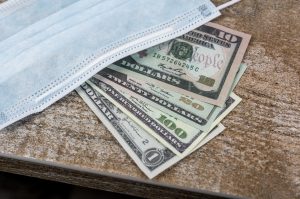Report finds opioid manufacturers donated to pro-drug nonprofits in order to increase sales.
A bipartisan congressional investigation uncovered information that key players in the U.S. opioid industry have spent $65 million since 1997 funding nonprofits that advocate treating pain with medications. In doing so, they’ve been able to increase opioid drug sales. The report from senators Chuck Grassley of Iowa and Ron Wyden of Oregon found these donations were being made even as the opioid crisis was coming to light.
Wyden and Grassley are the top senators on the Senate Finance Committee and are contemplating putting into place legislation that would further the federal system designed to track payments from companies to physicians to include payments to nonprofits. They want more transparency on the federal task forces assisting the U.S. Department of Health and Human Services with formulating policies.
The senators analyzed financial records for ten advocacy groups promoting access to prescription painkillers in the seven-year span from 2012 through 2019. Their probe added current information to prior Senate investigations dating back to 1997.

Grassley explained, “Tax-exempt advocacy organizations like the ones we looked at are created with good intentions. They can be forces for good, advocating and highlighting issues that might not otherwise receive the warranted attention. But we’ve found that the possibility of donor influence could and has undermined the efforts to develop and advocate good policy. When it comes to opioids, we need to make sure there is transparency and accountability to prevent what, in this case, led to serious public misunderstanding of the risks of these highly addictive drugs.”
Wyden added, “Our bipartisan investigation shows how pharmaceutical companies use tax-exempt groups to help seed the market for their products by shaping the views of patients, doctors and policymakers. The potential dangers presented by opioids makes this Trojan horse-style of marketing particularly troubling but make no mistake that such practices are widespread across the pharmaceutical industry, and consumers are often left in the dark. I look forward to working with Senator Grassley and our Finance Committee colleagues to pass into law important reforms that provide consumers with more visibility of the financial relationships between drug companies and tax-exempt organizations.”
In 2017, the Alliance for Patient Access took control of the Alliance for Balanced Pain Management, previously run by Mallinckrodt. The company paid the group $200,000 the same year. The nonprofit’s advocacy efforts, on paper, include using physical therapy, chiropractic care and yoga as alternatives to opioids for pain treatment after surgery.
The report also found that Daiichi Sankyo paid the American Chronic Pain Association $75,000 in 2018 to promote formulations of opioids supposedly manufactured to reduce abuse, although they have not been found to be less addictive. Company spokesperson Kimberly Wix described the payment as “an unsolicited grant intended to support the nonprofit’s online survey on abuse-deterrent formulations.” She added, “Daiichi Sankyo has no influence over content, communications, activities, etc., developed by third-party organizations to which we provide financial support through grants or charitable contributions.”
Daiichi Sankyo was the fifth-largest contributor to the groups from 2012 to 2019. The top four that gave to nonprofits, all of which gave at least $2 million over the seven years in which data was collected, were Teva, Pfizer, Insys, and Purdue Pharma.
Sources:
Senate report: Opioid industry has paid advocacy groups $65M


Join the conversation!